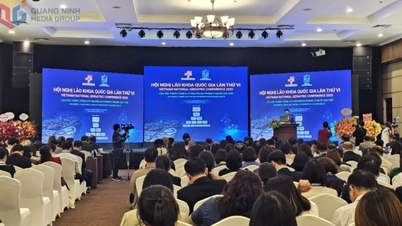
According to statistics from the Provincial General Hospital, from January 1 to October 31, 2025, the Emergency Resuscitation Department received and treated 27 cases of hospitalized patients due to various causes related to drug use, including many cases of Paracetamol poisoning due to overdose, some other cases of opium poisoning, sedatives, antidepressants, etc.
The main causes of drug poisoning are that patients do not follow the doctor's instructions on taking the drug, do not read the instructions carefully before taking it, drug interactions due to using it at the same time with other drugs or using it with inappropriate foods, do not take the drug with enough water to prevent stomach irritation or do not follow the instructions on when to take it to reduce side effects...
Pharmacist Pham Van Thinh, former Deputy Director of the Lang Son Drug, Cosmetic and Food Testing Center, said: Using medicine properly is the most important factor to ensure safety and effectiveness in disease treatment. Before using any medicine, the first thing patients or their family members need to do is carefully read the instructions for use. This information includes dosage, time of use and special notes. Some medicines need to be taken before meals to increase absorption efficiency, while others need to be taken after meals to reduce side effects. Strictly following the dosage and schedule of medication is essential. Adjusting the dosage without a doctor's instructions can cause unwanted side effects.
When using drugs, it is necessary to understand drug interactions because this can affect the effectiveness of treatment. Drug interactions are the phenomenon in which two or more drugs, when used at the same time, can react with each other, changing the effects of the drug or increasing the risk of side effects. Understanding these interactions not only helps you take the drug correctly to increase the effectiveness of treatment but also ensures the safety of the patient. Drug interactions can reduce the effectiveness of treatment and even cause adverse effects.
During the course of taking medication, patients should not arbitrarily reduce or stop taking medication without consulting a doctor. Stopping medication suddenly can cause the disease to relapse or cause side effects. It is important to check the expiry date of the medication and store it properly. Expired medication can lose its effectiveness or become toxic.
In addition, it should be noted that without a doctor's prescription, patients or family members should not arbitrarily change the form of the drug by crushing, cutting or opening the capsule because this can change the way the drug is absorbed in the body and affect the effectiveness of the drug. Do not share prescriptions with others and do not tell each other how to use the drug because each prescription is prescribed based on each individual's health condition, medical history, allergy history, current medications... Therefore, sharing drugs, or using drugs according to the advice of others without professional qualifications can be dangerous and contrary to regulations on drug use.
Doctors recommend that patients report their body's reactions after taking the drug to help doctors evaluate the effectiveness of the drug, detect unwanted side effects and adjust the appropriate dosage during treatment. Avoid using alcohol while taking the drug because alcohol can cause dangerous reactions that increase the risk of hospitalization due to incorrect use of the drug.
Source: https://baolangson.vn/dung-thuoc-dung-de-an-toan-5063944.html




![[Photo] Da Nang: Hundreds of people join hands to clean up a vital tourist route after storm No. 13](https://vphoto.vietnam.vn/thumb/1200x675/vietnam/resource/IMAGE/2025/11/07/1762491638903_image-3-1353-jpg.webp)


































































































Comment (0)